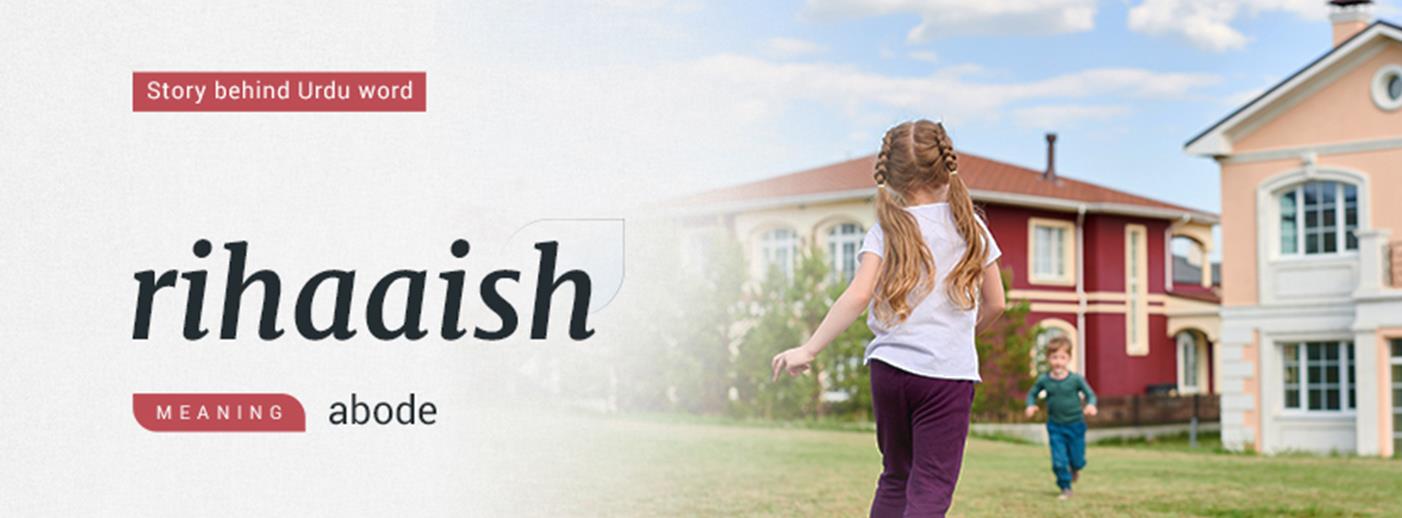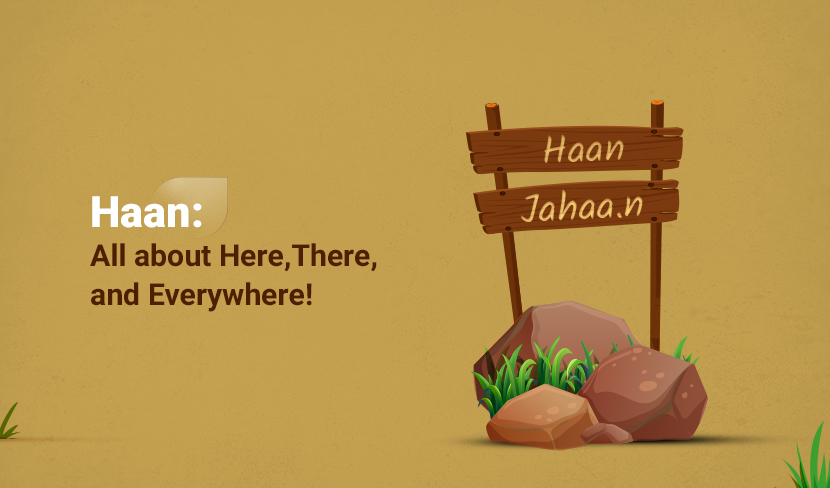अधिक खोजे गए शब्द
सहेजे गए शब्द
खिस्यानी बिल्ली खम्बा नोचे
जिसे क्रोध आ रहा हो वह अपनी खीझ या क्रोध दूसरों पर उतारता है, लाचारी में आदमी दूसरों पर क्रोध करता है, लज्जित व्यक्ति दूसरों पर अपनी लज्जा उतारता है, निर्बल की खीझ
कोशिश
कोई काम करने के लिए विशेष रूप से किया जानेवाला प्रयत्न, मेहनत, दौड़ धूप, प्रयत्न, प्रयास, चेष्टा, उद्योग, श्रम, उद्यम, उपाय, परिश्रम
आठ बार नौ त्योहार
सुख-सुविधा और आराम का शौक़ या लगन ऐसा बढ़ा हुआ है कि युग और समय उसको अल्प व्यय नहीं करने देता
चमनिस्तान
ऐसा बाग़ जहाँ फूल ही फूल हों, ऐसी जगह जहाँ दूर तक फूल ही फूल और हरा भरा नज़र आए, वाटिका, चमन, बाग़
दादरा
संगीत में एक प्रकार का चलता गाना (पक्के या शास्त्रीय गानों से भिन्न), एक प्रकार का गान, एक ताल
Rihaaish: The Word we’ve All Got Completely Wrong!!

Many times, languages behave quite weirdly. And this weirdness further shoots through the roof when two or more languages mingle, like Urdu and Hindi, Sanskrit and Persian, English and French, to name a few.
Grammar-enthusiasts would know that verbs and nouns, in all languages alike, have a love-hate relationship. For instance, in English, the word “play” can be both a noun as in a drama or act, or a verb, as in ‘We play’.
So, why are we beating around this Verb-Noun drama?
Because we have here a Murky, Muddy, Mr. Mime sort of a word that’s been around for long enough to make us believe that it’s Material.
‘Rihaaish’, a word that’s nowhere to be found in our classical poetry, but features a lot after its wane, means a stay, dwelling, residence, and also a delay (spatial).
is dil-e-tang me kyaa us ki rihaaish hoti
yani andar to nahi tha mire bahar koi tha
Zafar Iqbal
The word, by its inflection, is essentially a Persian one, strangely though, there is no such word in Persian. But wait, we have it in Urdu, we even have the compound ‘Rihaaish-Gaah’- a place of abode that’s a place of abode; yes, let that sink in!
So, what’s wrong with it?
Precisely this:
In Persian, infinitive verbs often turn to Aorist Tenses wherein a word can simultaneously mean to be both a noun and an action that’s either completed or in continuation.
Enough of the Gyan, let’s dig into some examples:
- Baaridan (to cast) turns to Baarish, which means both raining (v) and rain (n) itself
- Maalidan (To rub) turns to Maalish, meaning both rubbing (v) and a massage (n)
And endless other examples of the likes.
What’s noteworthy is that for the word ‘Rihaaish’ to exist, there has to exist an infinitive, something like ‘Rihadan’, and, bad news, there is no such word.
And, by that logic, there is no Rihaaish!
But then, there is such a word, and the question is, HOW?
To answer, let’s turn to some other words that might be of our help:
Know the word ‘dabaanaa’ (To press, squeeze)? Here’s how it formed, from the Pers. ‘dabish’ meaning bustling after someone, and also force, as a noun. Similarly, the words ‘Aazmaanaa, Talaashnaa, Taraashnaa', all follow the suit.
And pretty much this “INVERSELY” happened with Rihaaish. The only plausible explanation for this seemingly Persian word, is that it has been made up using the Hindi verb ‘Rahnaa’, to stay, to be.
Perhaps someone just threw all the rules of Persian grammar along with some Hindi verbs, tossed them offhandedly and Poof!! The word Rihaaish makes the scene!
The baffling thing is that this word finds itself entered in all major dictionaries like Anand Raj, Asifiya and others as a “colloquial” entry.
Now whether this word is logically correct, or is a logical error, is something that I leave up to you dear reader, should it even have a ‘Rihaaish’ in our language at all?
Delete 44 saved words?
क्या आप वास्तव में इन प्रविष्टियों को हटा रहे हैं? इन्हें पुन: पूर्ववत् करना संभव नहीं होगा





